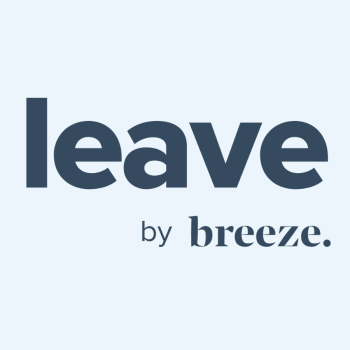Not breaking news: work has changed dramatically in the last 2.5 years.
The pandemic ushered in remote work, which ushered in new employee priorities. We started building work around life, not vice versa.
When some workers still weren't getting this life/work balance, they quit en masse as part of "The Great Resignation."
As a result, there were more job openings than employees to fill 'em. The workplace power balance tilted heavily towards employees, and employers were forced to evolve to hire or even keep the best talent.
A benefit arms race has unfolded. Companies have revamped outdated packages to include the most forward-thinking benefits.
The 4-day work week, remote work flexibility, unlimited PTO, pet insurance, ping-pong and craft beer in the break room (when you're in the office).
But in the rush for trending employee benefits, paid parental leave should not be forgotten.
Recent research from SHRM found the share of companies offering paid maternity leave in 2022 dropped to 35% from 53% in 2020. The percentage offering paid paternity leave dropped to 27% from 44% in 2020.
A Breeze study from July found 74% of employed women would have no savings left if they went on unpaid maternity leave for 8 weeks. The US is the only developed nation without a federal paid parental leave program, and 9 states have their own paid programs.
All things considered, the need for paid parental leave is great and its value as an employee benefit can be truly meaningful.
Though to gauge where it falls on the employee benefits hierarchy, we surveyed 1,000 employed adults between the ages of 22 and 40 – the core of the workforce for the next decade plus.
Keep reading for the full analysis of our data, but key findings included:
- The majority of working women want paid parental leave over a 4-day work week, employer-paid dental insurance, or employer-paid vision insurance
- 60% of employees without paid parental leave would give up social media for a year if their employer started offering paid parental leave
- 44% would consider a job offer with 5% less pay, but 16 weeks of paid parental leave
Click here to jump to the full survey results.
Majority of women want 16 weeks of paid parental leave, not the 4-day work week
Note: If you'd like to see the raw data or data broken down by state, race, age, etc., please email me at [email protected]
Our employed poll participants were first asked a series of "would you rather your employer offer 16 weeks of paid parental leave or [insert benefit]..." questions that put paid parental leave against popular employee benefits.
Here were the findings:
- 73% would rather their employer offer 16 weeks of paid parental leave (PPL) instead of employer-paid pet insurance, including 75% of women
- 70% would rather get PPL instead of an employer-paid "social" room (i.e. ping pong, beer), including 74% of women
- 69% would rather get PPL instead of employer-paid fitness benefits, including 73% of women
- 61% would rather get PPL instead of employer-paid mental health benefits, including 63% of women
- 55% would rather get PPL instead of employer-paid vision insurance, including 58% of women
- 55% would rather get PPL instead of an employer-paid monthly student loan payment benefit, including 56% of women
- 54% would rather get PPL instead of weekly employer-paid events (i.e. lunches, happy hours), including 60% of women
- 46% would rather get PPL instead of a 4-day work week, including 51% of women
- 45% would rather get PPL instead of employer-paid dental insurance, including 51% of women
- 37% would rather get PPL instead of the option to work remotely full-time, including 35% of women
- 36% would get rather get PPL instead of a 401(k) match, including 37% of women
60% of employees would give up social media for the next year if their employer started offering 16 weeks of paid parental leave
Our respondents that indicated their employer does not currently offer any type of paid parental leave were posed a hypothetical: Would they give up social media for the next year if it meant their current employer began offering a 16-week paid parental leave benefit?
63% of female & 56% of male respondents answered "yes" to the above.
Paid parental leave holds considerable value with employees.
A majority want paid parental leave over many other employer-paid benefits like vision insurance and mental health or fitness benefits.
And while the overall respondent pool narrowly favored both dental insurance and the 4-day work week over paid parental leave, the majority of women still wanted paid parental leave over either of those.
In only a few instances, including remote work flexibility and a 401(k) match, did less than 40% of poll participants select the alternative to 16 weeks of paid parental leave.
Even then, paid parental leave was held in high regard because context must be considered.
That being no matter how much paid parental leave an employer offers, an employee may never have need for it.
If a company offers a 401(k) match, you can instantly start reaping the benefits. You can instantly make a 4-day week or remote flexibility work for you. Same goes for mental health or fitness benefits, or vision and dental insurance.
With paid parental leave, you could work at a company for years and never have use for it.
Yet still, our study shows that many employees, especially women, have a preference for paid parental leave. Other benefits can be more tangible, but the financial peace of mind that comes with paid parental leave is without compare.
44% of employees would consider an offer with 5% less pay, but 16 weeks of paid parental leave
The final section of this study split our respondent pool into two groups: those who already get paid parental leave from their employer and those who don't.
The first group was asked if they would accept another job with a higher salary but no paid parental leave, while the second group was asked if they would accept another job with lower pay but with paid parental leave.
44% of employees without paid parental leave would consider another job offer with 5% less pay but with 16 weeks of paid parental leave.
Though it's not included in the graphic, our research also showed 20% of employees without paid parental leave would consider a job offer with 10% less pay but with a paid parental leave benefit. When we raised the stakes again to 20% less pay, only 8% said they'd consider the offer.
Methodology
All data found within this report derives from a survey created and commissioned by Breeze and conducted online by survey platform Pollfish. In total, 1,000 actively-employed US-based adults between the ages of 22 and 40 were surveyed. The appropriate respondents were found via Pollfish’s age, location, and occupation filtering features. This survey was conducted on October 28th, 2022.
Full survey results
Notes: Some answers won't add up to exactly 100% due to rounding.
If you'd like to see the raw data or data broken down by state, race, age, etc., please email me at [email protected]
1. Which benefit would you rather your employer offer: 16 weeks of paid parental leave or a 4-day work week?
- 46% answered "16 weeks of paid parental leave"
- 54% answered "4-day work week"
2. Which benefit would you rather your employer offer: 16 weeks of paid parental leave or the option to work remotely full-time?
- 37% answered "16 weeks of paid parental leave"
- 63% answered "the option to work remotely full-time"
3. Which benefit would you rather your employer offer: 16 weeks of paid parental leave or employer-paid mental health benefits/coaching?
- 61% answered "16 weeks of paid parental leave"
- 39% answered "employer-paid mental health benefits/coaching"
4. Which benefit would you rather your employer offer: 16 weeks of paid parental leave or a 401(k) match?
- 36% answered "16 weeks of paid parental leave"
- 65% answered "401(k) match"
5. Which benefit would you rather your employer offer: 16 weeks of paid parental leave or unlimited PTO?
- 29% answered "16 weeks of paid parental leave"
- 71% answered "unlimited PTO"
6. Which benefit would you rather your employer offer: 16 weeks of paid parental leave or employer-paid fitness benefits/coaching?
- 69% answered "16 weeks of paid parental leave"
- 31% answered "employer-paid fitness benefits/coaching"
7. Which benefit would you rather your employer offer: 16 weeks of paid parental leave or weekly employer-paid events (i.e. lunches, happy hours, dinners, etc.)?
- 54% answered "16 weeks of paid parental leave"
- 46% answered "weekly employer-paid events (i.e. lunches, happy hours, dinners, etc.)"
8. Which benefit would you rather your employer offer: 16 weeks of paid parental leave or employer-paid vision insurance?
- 55% answered "16 weeks of paid parental leave"
- 45% answered "employer-paid vision insurance"
9. Which benefit would you rather your employer offer: 16 weeks of paid parental leave or employer-paid dental insurance?
- 45% answered "16 weeks of paid parental leave"
- 55% answered "employer-paid dental insurance"
10. Which benefit would you rather your employer offer: 16 weeks of paid parental leave or an employer-paid monthly student loan payment benefit?
- 55% answered "16 weeks of paid parental leave"
- 45% answered "employer-paid monthly student loan payment benefit"
11. Which benefit would you rather your employer offer: 16 weeks of paid parental leave or employer-paid pet insurance?
- 73% answered "16 weeks of paid parental leave"
- 27% answered "employer-paid pet insurance"
12. Which benefit would you rather your employer offer: 16 weeks of paid parental leave or an employer-paid “social” room (i.e. ping pong, beer, snacks, etc.)?
- 70% answered "16 weeks of paid parental leave"
- 30% answered "employer-paid 'social' room (i.e. ping pong, beer, snacks, etc.)"
13. Does your current employer offer any type of paid parental leave benefit (i.e. employer-paid paid parental leave, not a government program)?
- 54% answered "yes"
- 47% answered "no"
14. (Asked to those who answered "no" to Q13) Would you give up social media for the next year if it meant your current employer began offering a 16-week paid parental leave benefit?
- 60% answered "yes"
- 40% answered "no"
15. (Asked to those who answered "no" to Q13) If another employer made you a job offer that was 5% below your current salary but also included a 16-week paid parental leave benefit, would you consider the offer?
- 44% answered "yes"
- 56% answered "no"
16. (Asked to those who answered "no" to Q13) If another employer made you a job offer that was 10% below your current salary but also included a 16-week paid parental leave benefit, would you consider the offer?
- 20% answered "yes"
- 80% answered "no"
17. (Asked to those who answered "no" to Q13) If another employer made you a job offer that was 20% below your current salary but also included a 16-week paid parental leave benefit, would you consider the offer?
- 8% answered "yes"
- 92% answered "no"
18. (Asked to those who answered "yes" to Q13) If another employer made you a job offer that was 5% above your current salary but did not include any paid parental leave benefit, would you consider the offer?
- 59% answered "yes"
- 41% answered "no"
19. (Asked to those who answered "yes" to Q13) If another employer made you a job offer that was 10% above your current salary but did not include any paid parental leave benefit, would you consider the offer?
- 73% answered "yes"
- 27% answered "no"
20. (Asked to those who answered "yes" to Q13) If another employer made you a job offer that was 20% above your current salary but did not include any paid parental leave benefit, would you consider the offer?
- 87% answered "yes"
- 13% answered "no"
Notes: Some answers won't add up to exactly 100% due to rounding.
If you'd like to see the raw data or data broken down by state, race, age, etc., please email me at [email protected]










